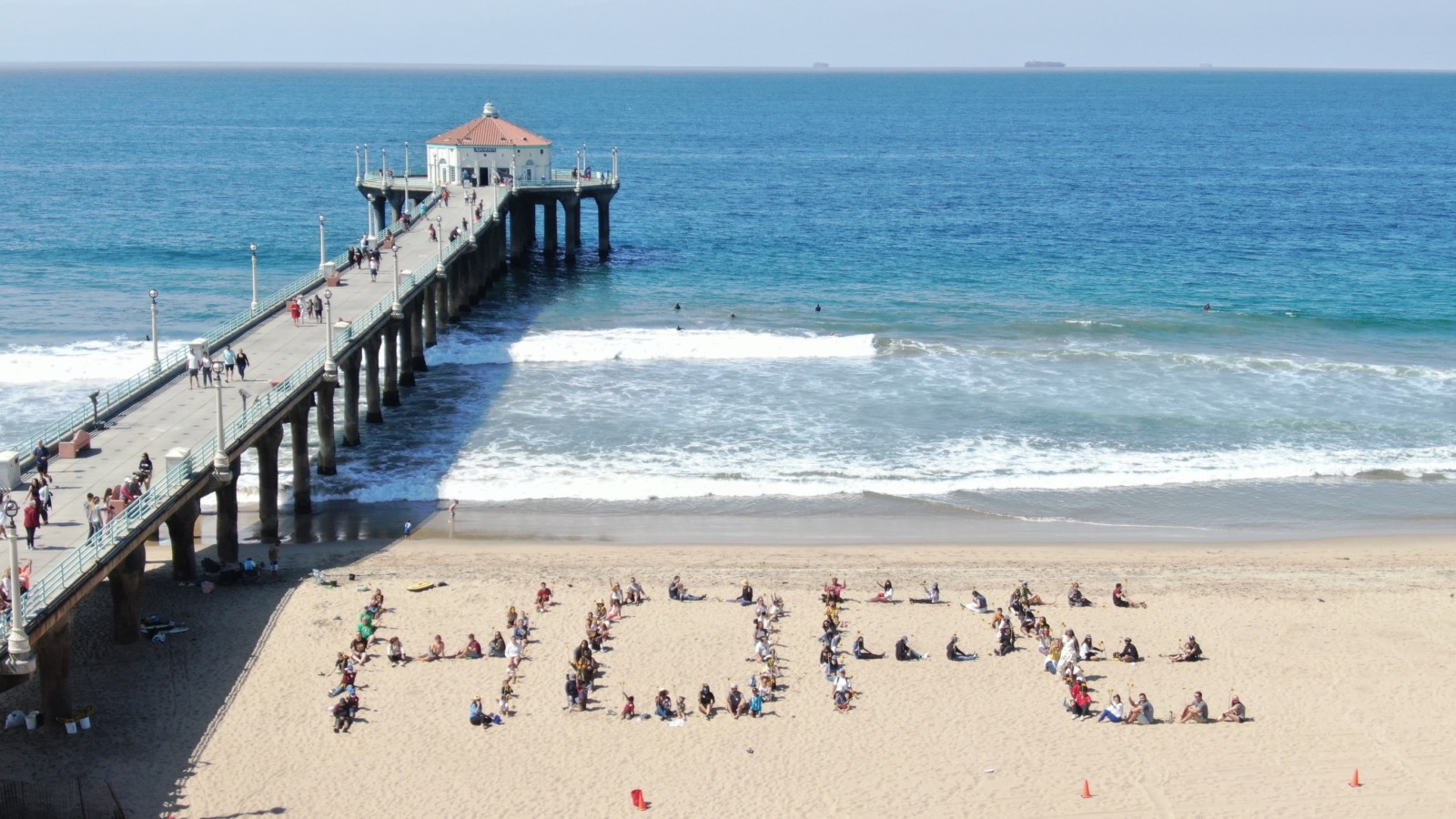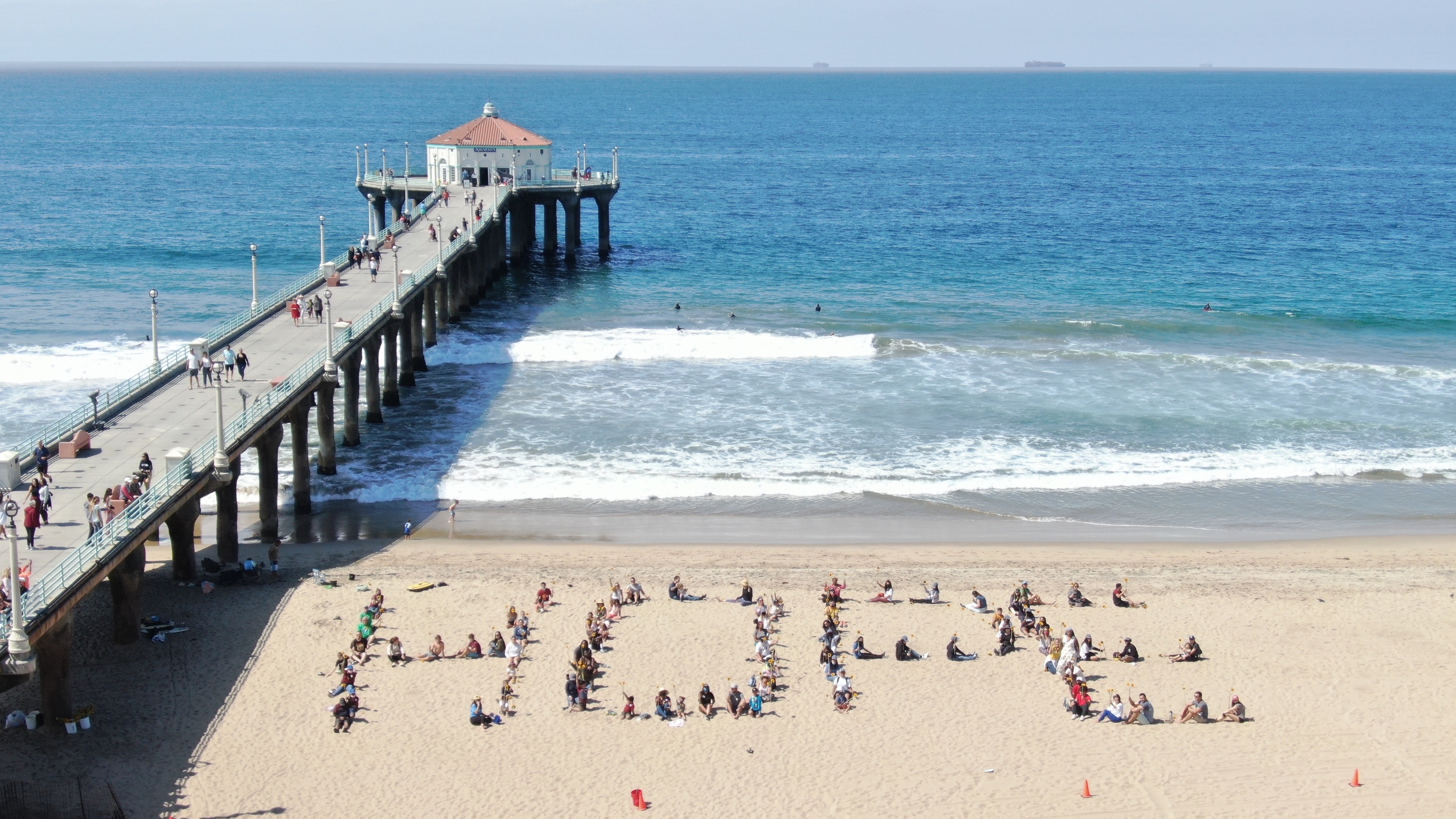
September 21, 2021, is the International Day of Peace, an event created by the United Nations and celebrated around the world. This year, I celebrated the International Day of Hope in Manhattan Beach with STAND 4 PEACE, an organization dedicated to raising awareness about issues related to peace, including the importance of hope.
We gathered, along with dozens of community members of all ages, at the Manhattan Beach Pier to celebrate the importance of peace and hope by spelling out HOPE on the beach. Participants all held sunflowers, the symbol for hope, in honor of their mission to spread hope and peace to all individuals around the world.
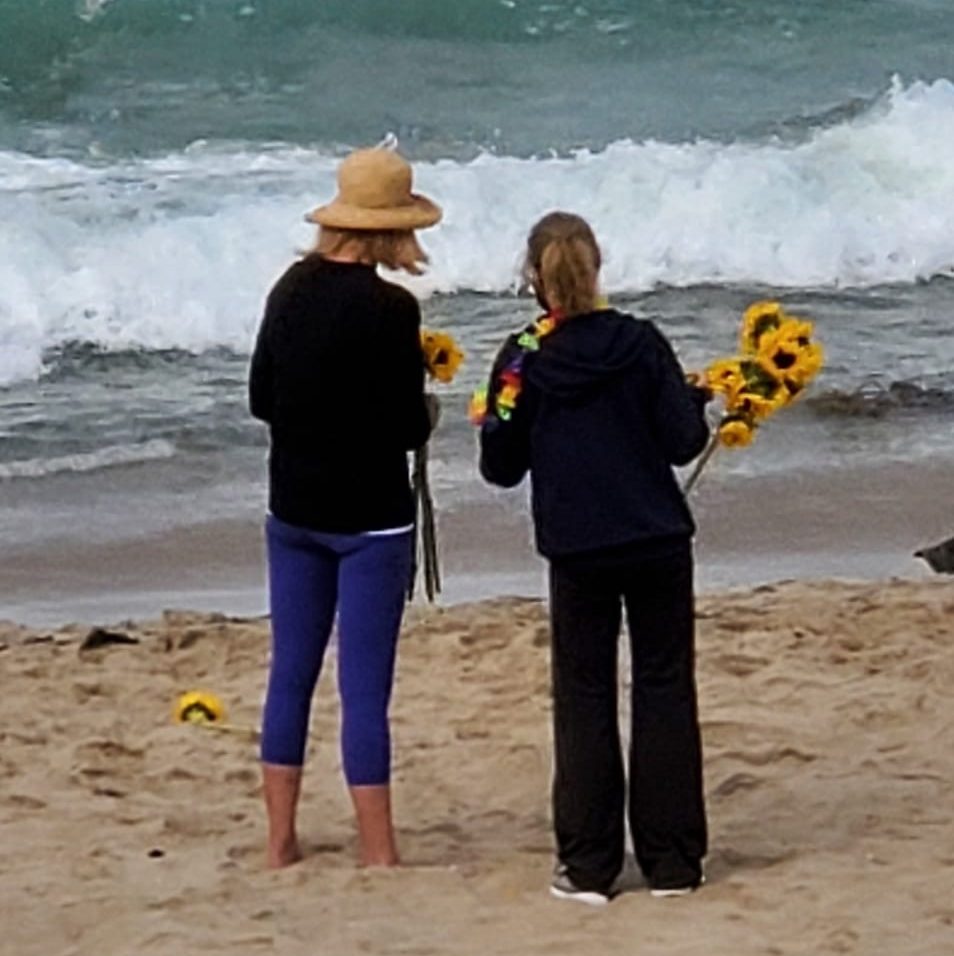
and STAND 4 PEACE CoFounder Donna Nicholson
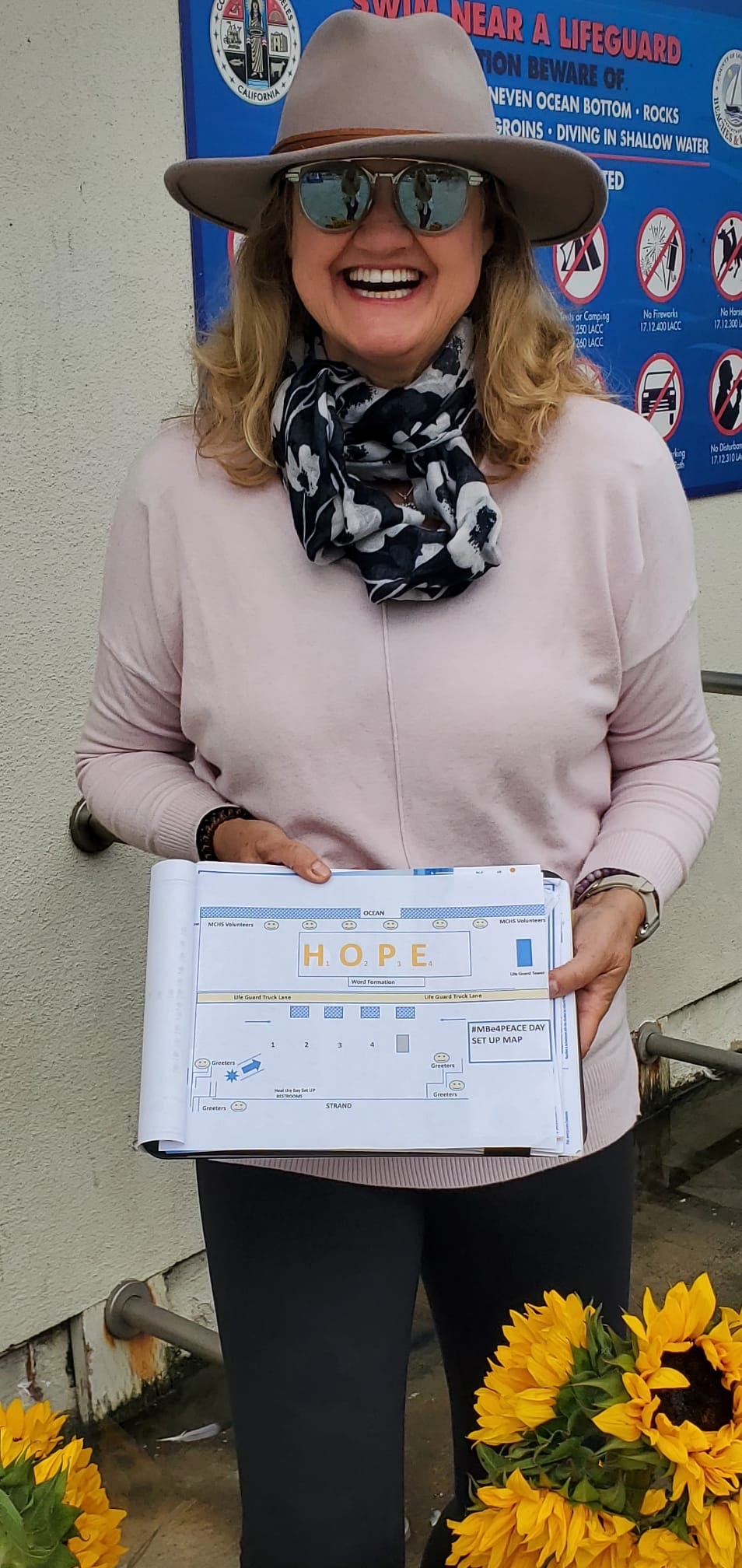
diagram for the beach HOPE, and
sunflowers on Manhattan Beach
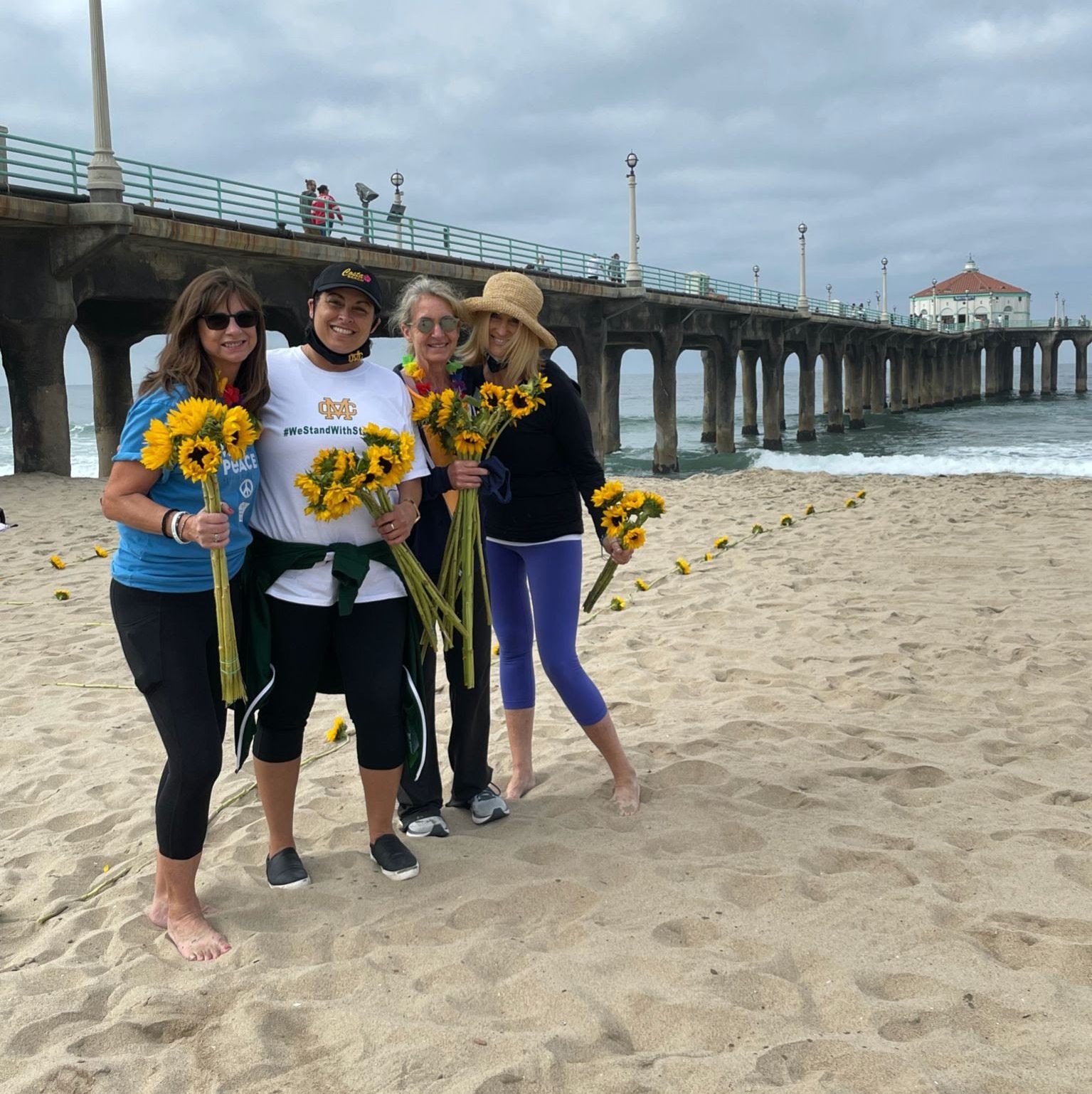
Dr. Karina Gerger, Principal at Mira Costa High School
and STAND 4 PEACE Partner; Mayor Hildy Stern;
Donna Barney Nicholson, Pennekamp 1st Grade
Teacher and STAND 4 PEACE Co-Founder
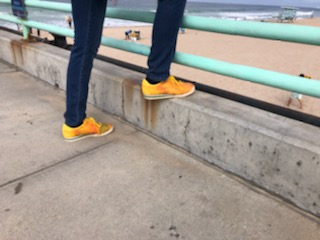
Hope Sunflower Shoes
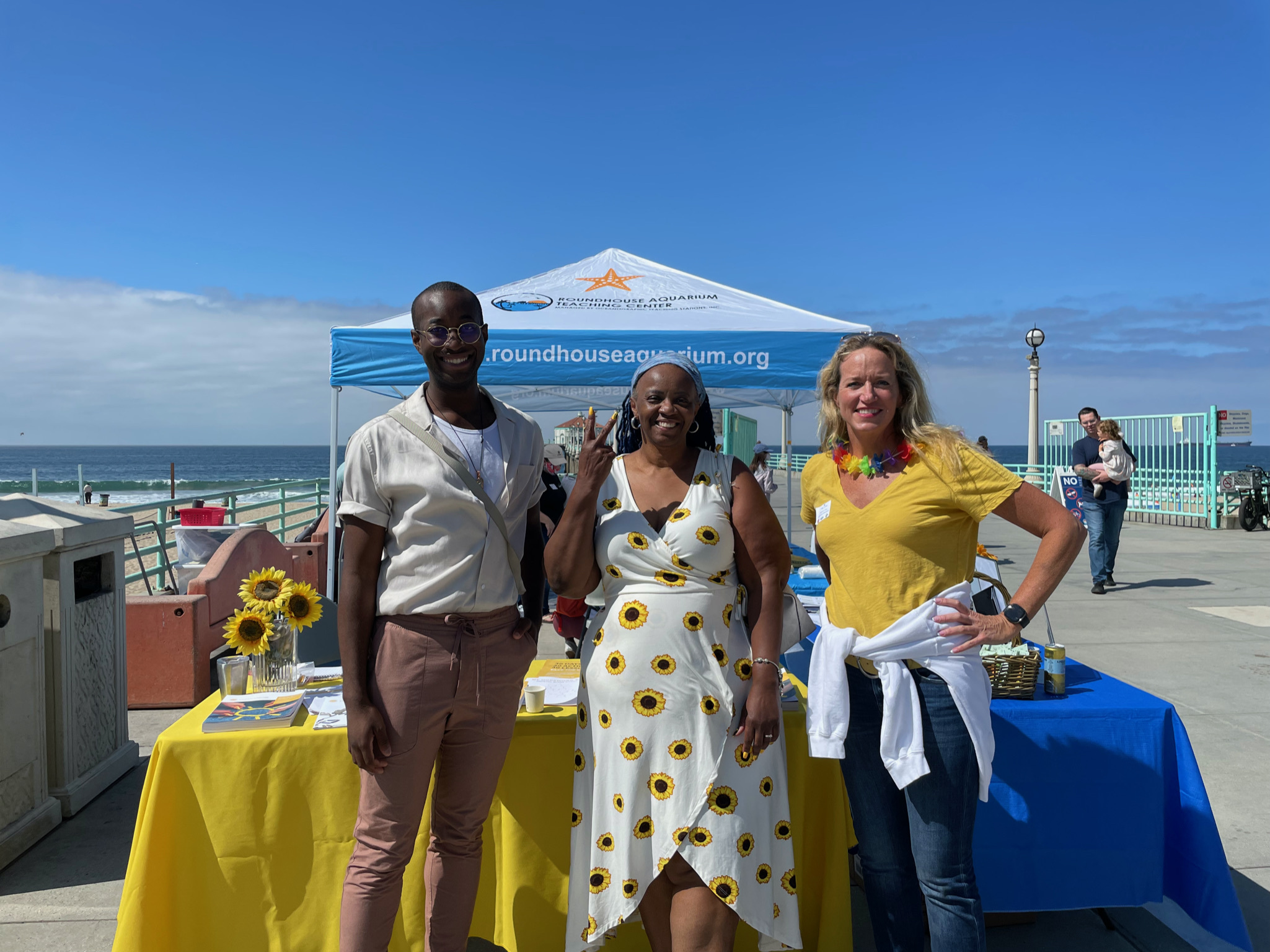
and individuals participating in
HOPE message
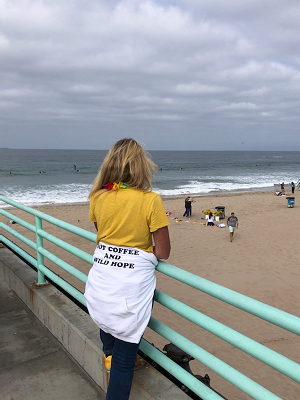
Hope Sunflower Shoes

women from the Girl Scouts of America

Marisusan Trout; Marija Kosanovich;
Karen Wooldridge, Co-Founder of STAND 4 PEACE;
Donna Barney Nicholson, Pennekamp 1st Grade Teacher
and STAND 4 PEACE Co-Founder
I was honored to be a part of this incredible event, and humbled by the support and enthusiasm that we received at Manhattan Beach. It was inspiring to see so many people come out to support the cause and activate hope in their community.
This year, more than ever before, the International Day of Peace reminds us why it is important to share the science of hope with people around the world. Hopelessness, the antithesis of hope, has reached unprecedented levels globally, and is predictive of weapon-carrying at school, self-harm, accidents, and violence. Peacekeeping efforts must address hopelessness when advocating change. Without hope skills to combat the effects of hopelessness, we cannot create or find peace, as either individuals or a society.
I began teaching hope skills in 2011 to combat hopelessness as a method of suicide prevention. What started as a 12 lesson curriculum has grown into Hopeful Minds, curriculums and resources for teachers and parents, Hopeful Mindsets, courses designed to teach hope skills to target populations, and Hopeful Cities, a playbook that teaches cities around the world how to activate hope in their communities.
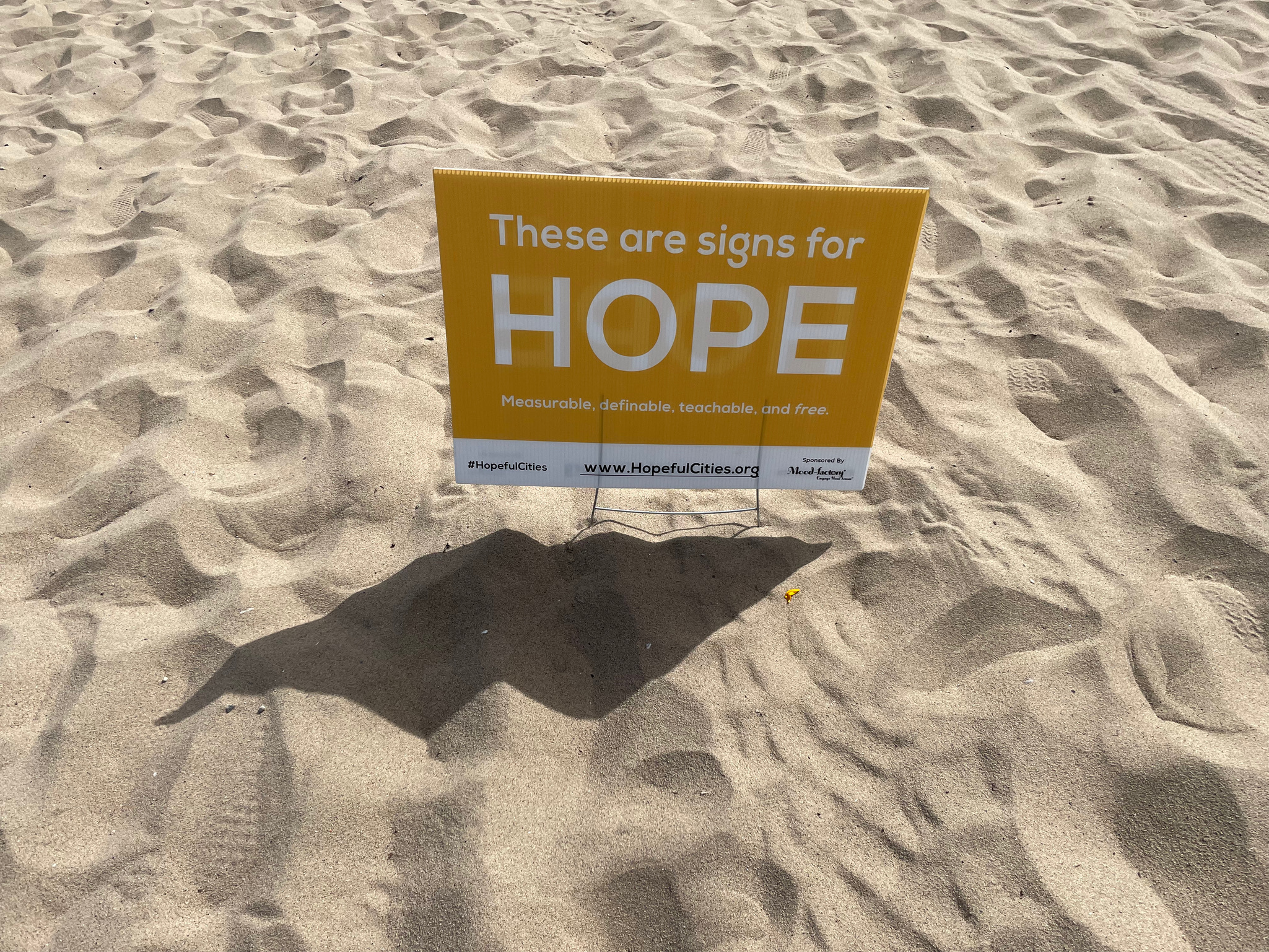
Throughout my journey, the one thing that has continued to surprise me is that, though we know that hopelessness is predictive of nearly every negative life outcome, very few people know what hopelessness is or how to overcome it. Without an understanding of hope, hopelessness, and hope skills, we cannot hope to achieve peace. That’s why STAND 4 PEACE and iFred stood together on that beach; we know that we must work together to combat hopelessness.
I am incredibly grateful for the work that STAND 4 PEACE is doing, and look forward to continuing to celebrate future International Days of Peace by spreading the science of hope around the world.


